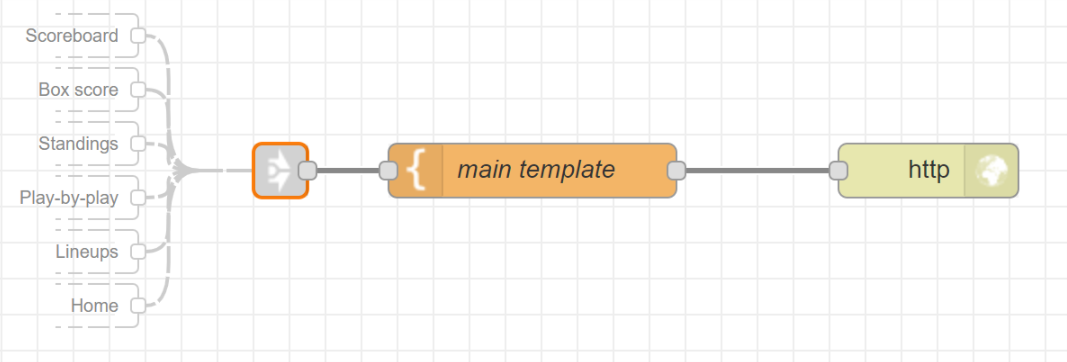node-red-contrib-nba v1.0.9
node-red-contrib-nba
Access the NBA Stats API using Node-RED.
Overview
The goal of this project is to provide easy access to the robust, yet undocumented NBA Stats API using Node-RED, a visual, flow-based development tool. Whether you're looking to create an NBA database, get the latest scores and stats, peform data analysis, or build an interactive website, this tool will help you get the data you need without having to research all the endpoints of the NBA Stats API.
With the NBA and other Node-RED nodes, you can create charts like this ...
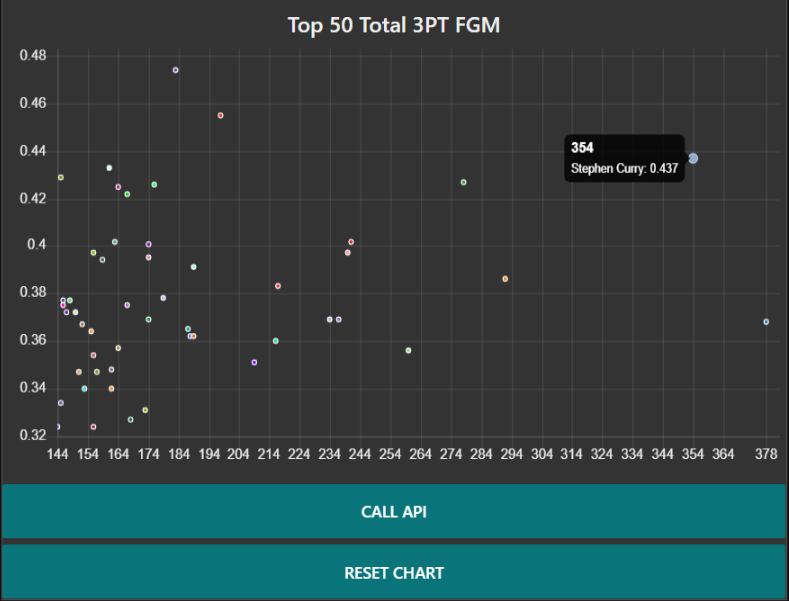
... with just a few lines of JavaScript:

... or no JavaScript at all:

Dependencies and references
This project uses the nba npm module to call the various endpoints of the NBA Stats API. Please refer to this module's GitHub for futher information regarding the API's stability and usability as well as blacklisted IP addresses.
Nodes
There are a total of 5 nba nodes. Two of the nodes require no ID:
database: get player and team ids.
league: get leaguewide data.
The other three require an ID:
player: get data in relation to a given player.
team: get data in relation to a given team.
game: get data in relation to a given game.
Database
This node has the following uses:
- get all NBA players
- get all NBA teams
- get one NBA player by name
- get one NBA player by id
- get one NBA player by name
- get one NBA team by name
- get one NBA team by id
- update the database
Each player or team object contains a unique id used by the NBA Stats API. These are required by the player and team nodes.
The first 7 functions do not make API calls. Instead, they search files of the nba npm module. The final function listed above makes an API call to update these files. They are also updated when the Node-RED application starts and imports the node-red-contrib-nba module.
Player
This node requires a player id. It will return the following information in relation to this player, based on its configuration:
- the player's profile
- the player's career stats
- the player's shot chart
- the player's season splits
Team
This node requires a team id. It will return the following information in relation to this team, based on its configuration:
- the team's profile
- the team's roster
- the team's schedule
- the team's season stats
- the team's leaders
- the team's shooting stats
- the team's season splits
- the team's lineups
- the team's on/off details
- the team's shot chart
League
This node does not require an id, as it provides data for the entire league. It will return the following data based on its configuration:
- the scoreboard for a given game day
- league leaders
- league standings
- game logs grouped by player or team
- player tracking grouped by player or team
- shooting stats grouped by player or team
- hustle stats grouped by player or team
- clutch stats grouped by player or team
- lineups
- schedule
- playoffs bracket
Game
This node requires a game id. It will return the following information in relation to this game, based on its configuration:
- the game's box score
- the game's play-by-play
- the game's shot chart
- the game's preview article
- the game's recap article
- the game's lead tracker
The get a game id, use the league node to get a scoreboard for a given game day. The game id will be located in msg.payload.sports_content.games.gamei.id.
Using the nodes
Valid Parameters
The nodes dynamically load dropdown options from the nba.json file in the nba-client-template npm module. If you load inputs dynamically, please refer either to this file or the dropdown options. If you send an invalid parameter value, then you should receive an error from the NBA API explicitly saying what it accepts for the particular endpoint.
Dynamically loading inputs
Most of the node inputs can be dynamically loaded. There are two ways to do this.
Text fields
Text fields may be hardcoded or dynamically populated via mustache syntax relative to the incoming msg object. For example, if the player id is located in msg.payload.playerId, then you can fill {{payload.playerId}} in the id field.
A simple example is using the database node to get a team by name and then sending the response to a team node. Because the database node returns a team object in msg.payload with the team id in msg.payload.teamId, you can now fill in {{payload.teamId}} in the team id field of the team node.

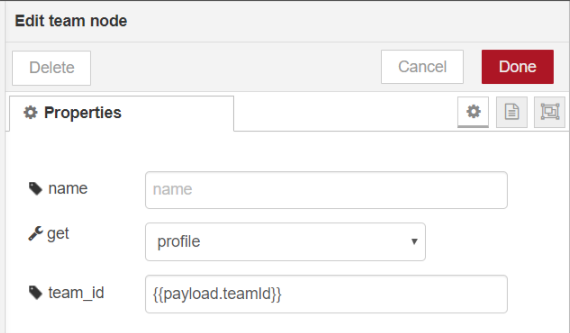
Dropdown options
Dropdown fields may be selected from the menu or dynamically populated via the specified property of the incoming msg object. For example, if loading measure type dynamically, the dropdown menu designates msg.measure_type as the specified property. When using this option, the property must be set earlier in the flow.

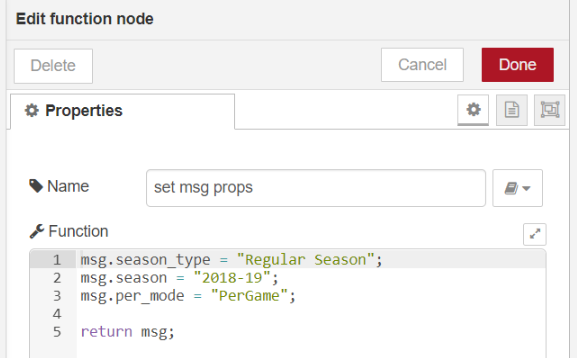
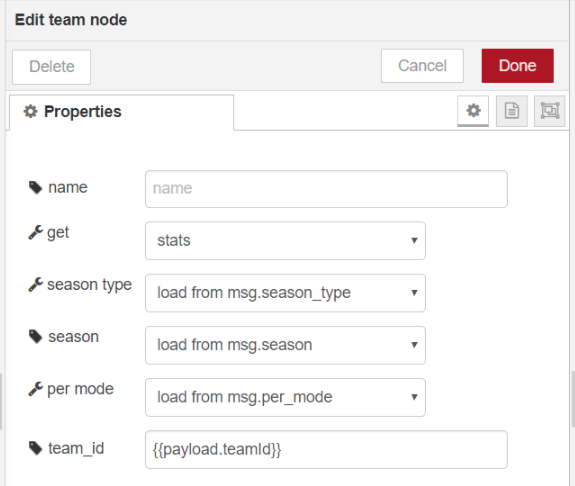
Getting id's
Use the database node to get player and team id's.
Use the league node to get a scoreboard for a given game day. The game id will be located in msg.payload.sports_content.games.gamei.id.
The cleanedData field
Some responses from the NBA Stats API return result sets that map headers, an array of strings, to rowSet, an array of arrays.
In this case, the node-red-contrib-nba module adds a cleanedData field that combines these arrays into an array of objects that might be easier to work with.
Ex result set: obj.headers = [PTS, MIN, NAME]
obj.rowSet = [[25, 37, "James Harden"], [40, 35, "Stephen Curry"]]
Ex cleanedData = [{PTS: 25, MIN: 37, NAME: "James Harden},
{PTS: 40, MIN: 35, NAME: "Stephen Curry}]Tests
The test directiory contains unit tests for each node using the node-red-test-helper and mocha libraries.
To run all tests:
npm testTo test the database node:
npm run test-databaseTo test the player node:
npm run test-playerTo test the team node:
npm run test-teamTo test the league node:
npm run test-leagueTo test the game node:
npm run test-gameExample flows
Get all players. Download the flow.

Schedule a daily database update to get the latest player and team info. Download the flow.

Develop an interactive website that displays a game day's scoreboard. Download the flow.
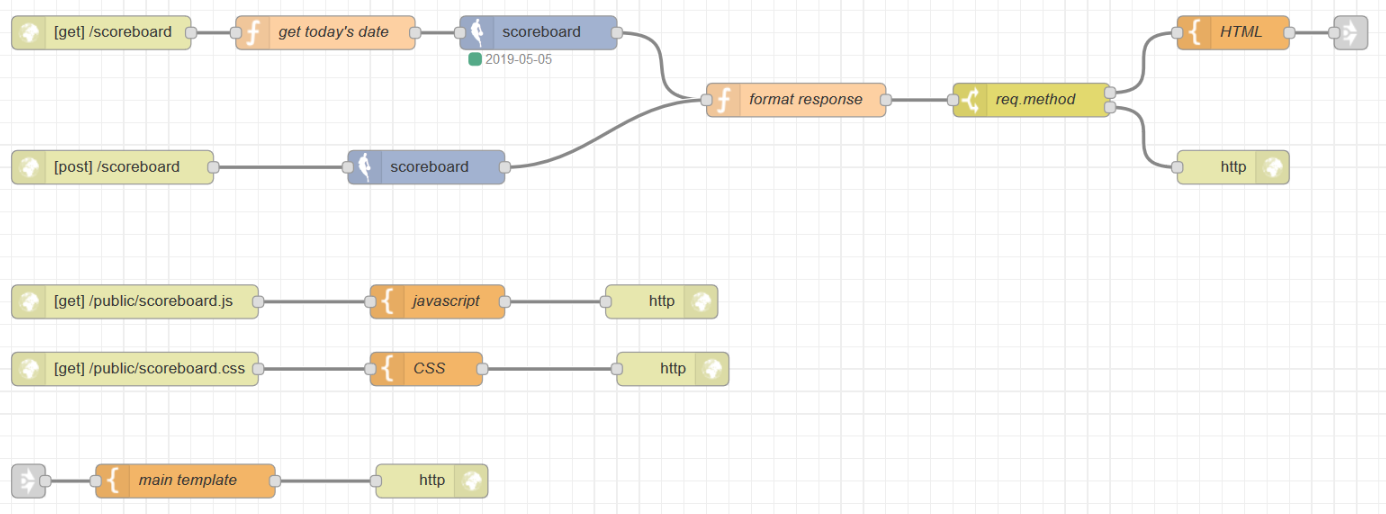
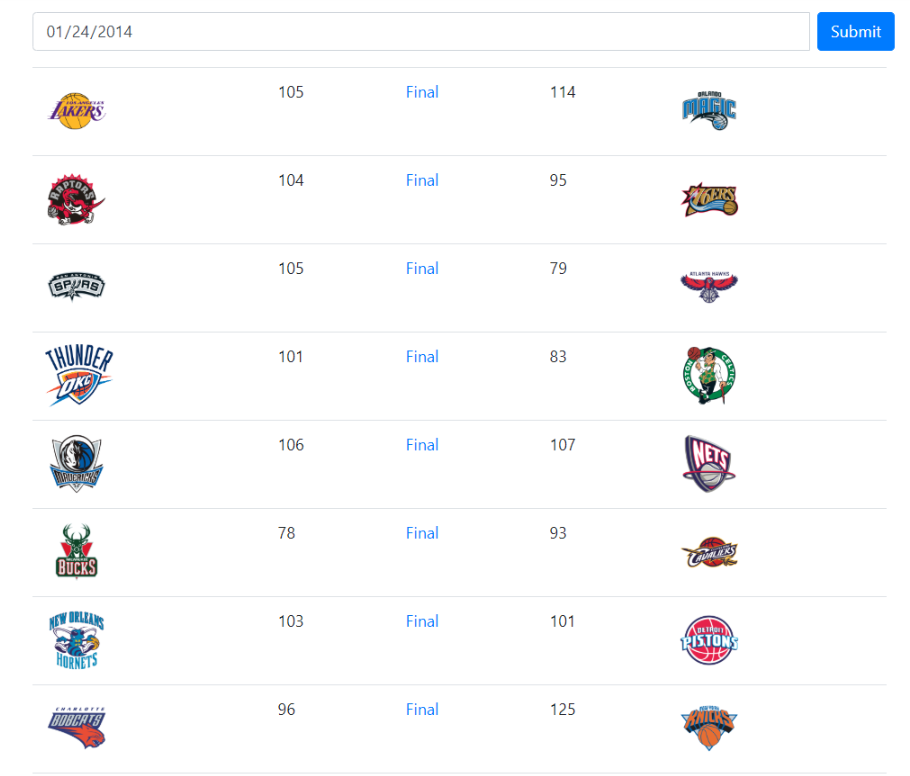
Display a game's box score with live updates. Download the flow.
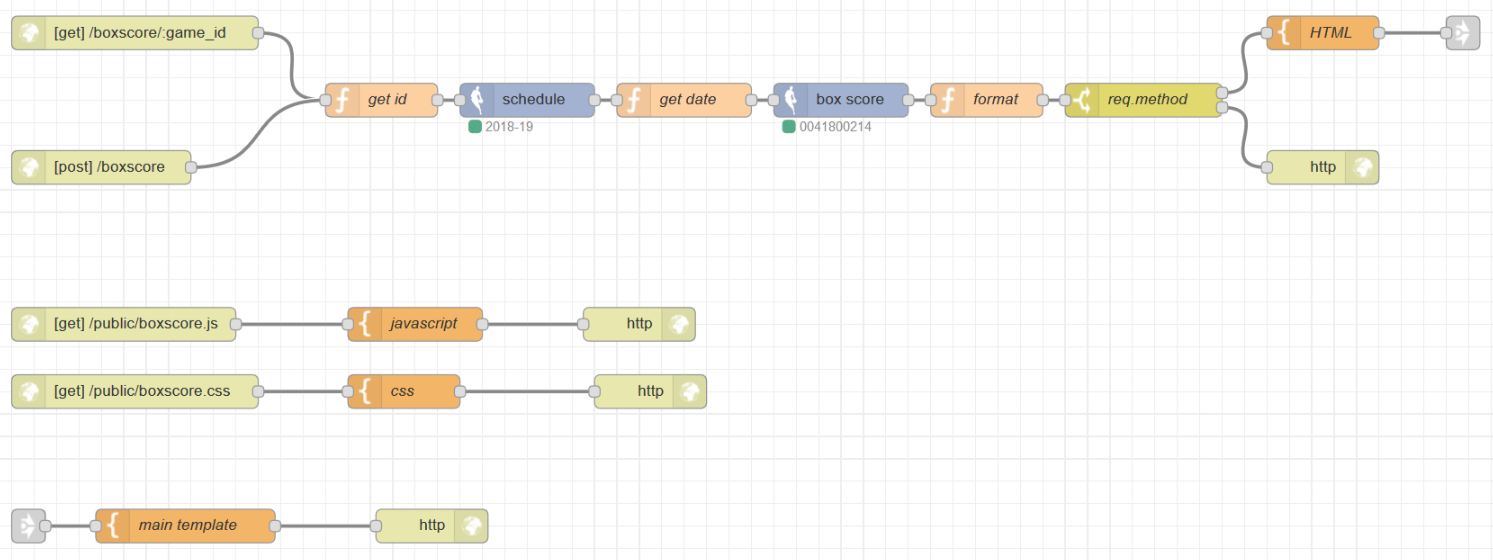
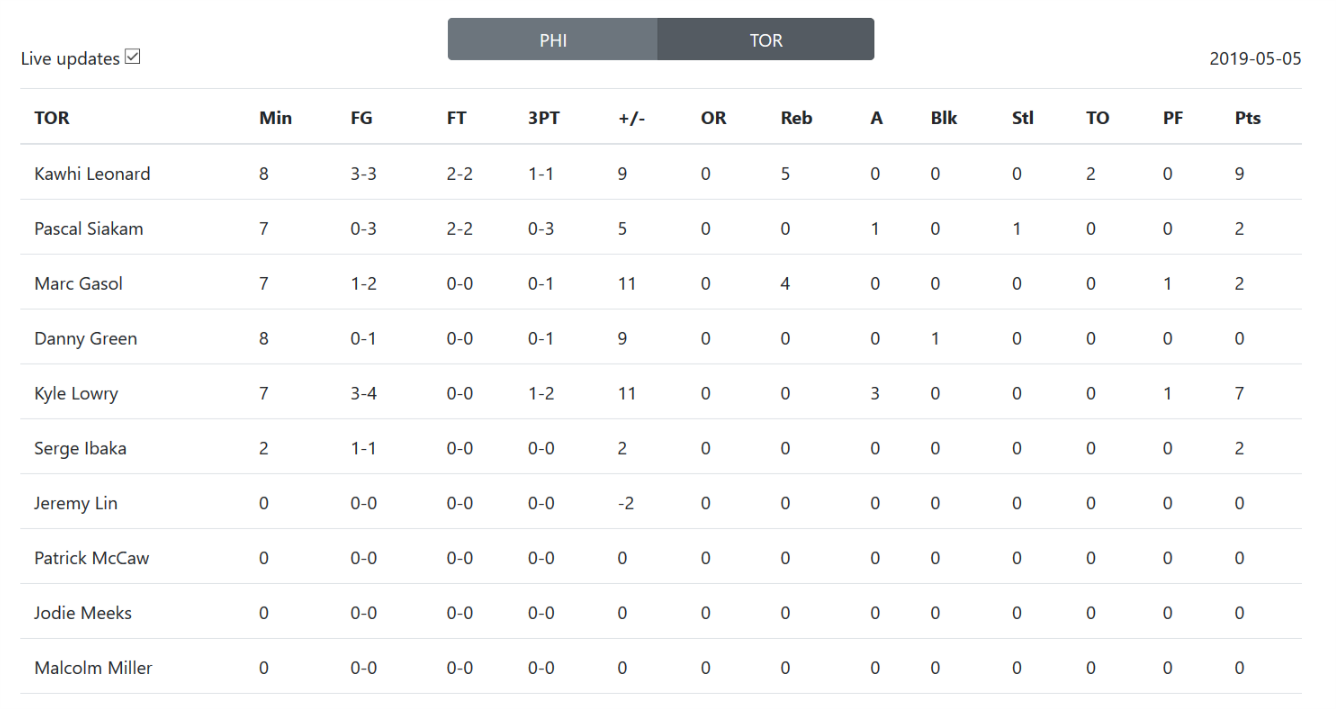
Develop an interactive website that displays a team's best lineups. Download the flow.
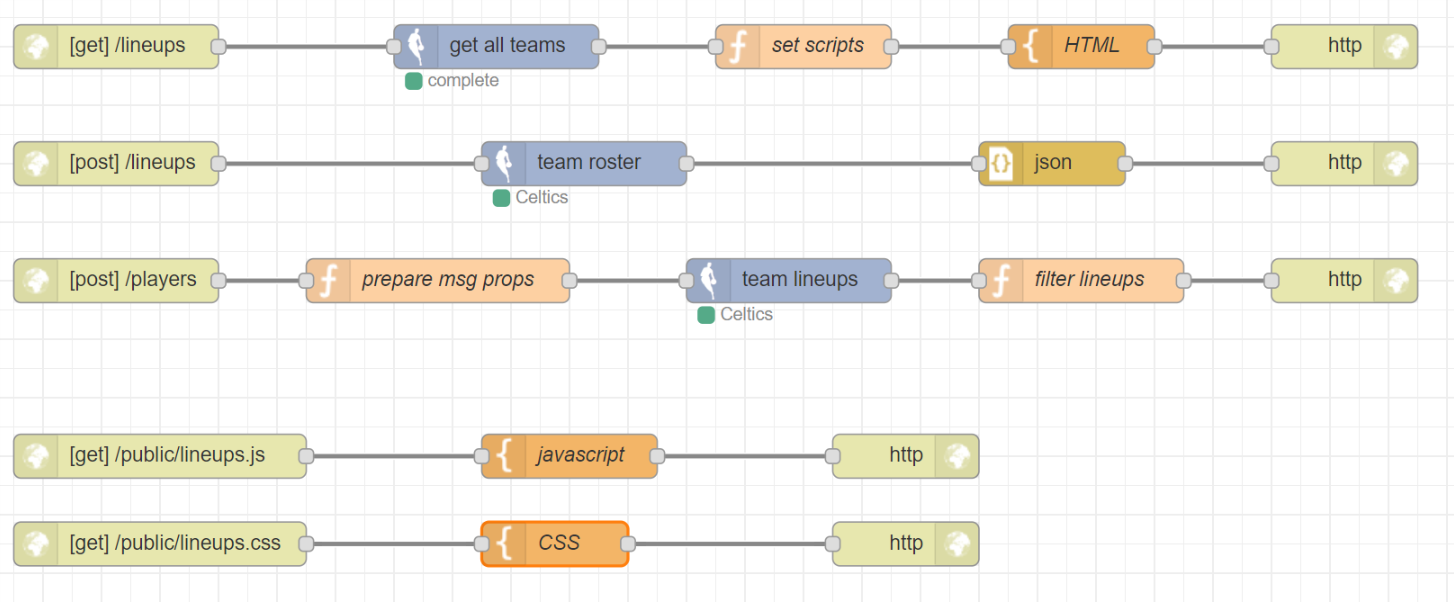
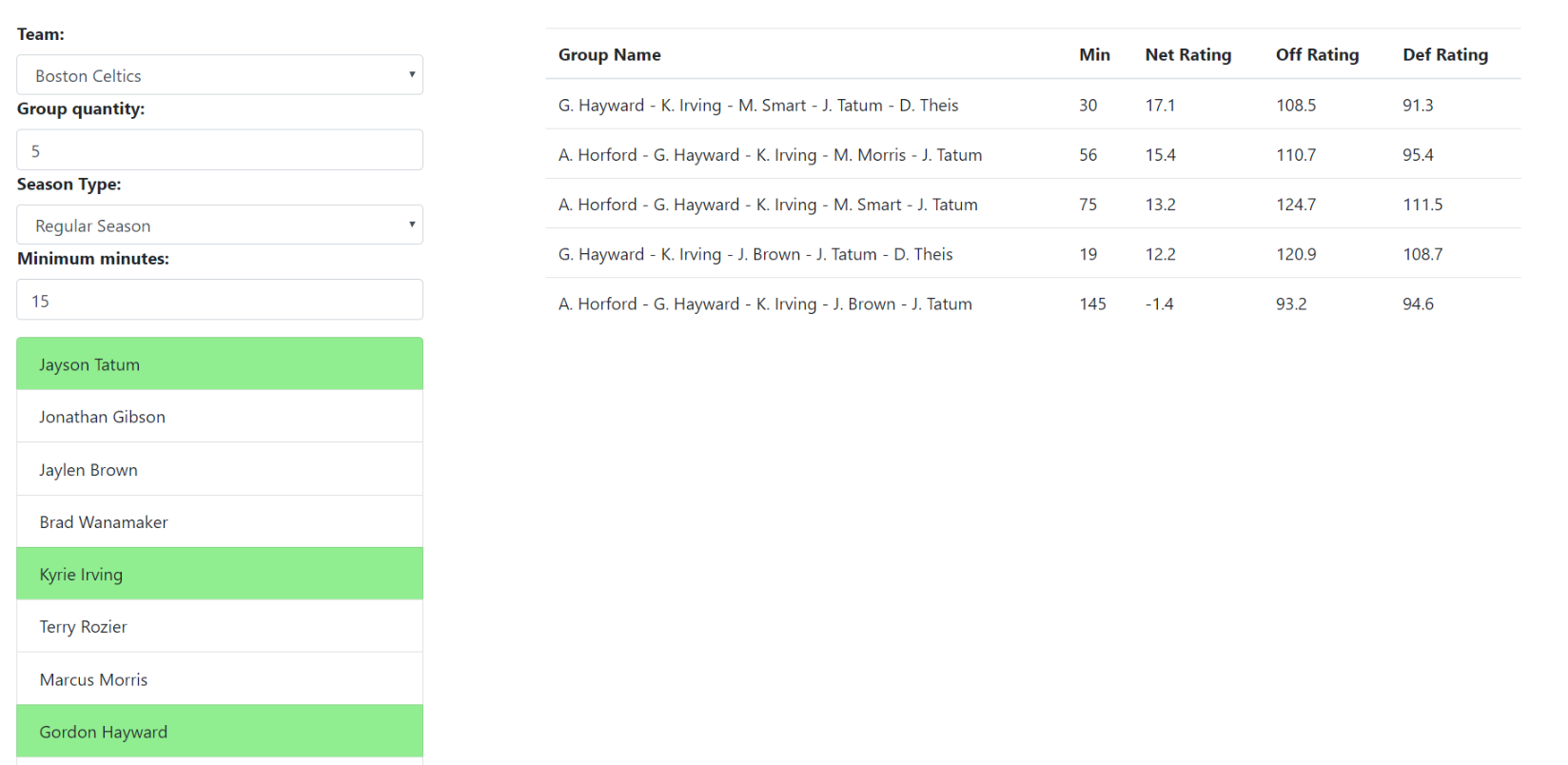
Develop an interactive website that displays the current year's standings. Download the flow.

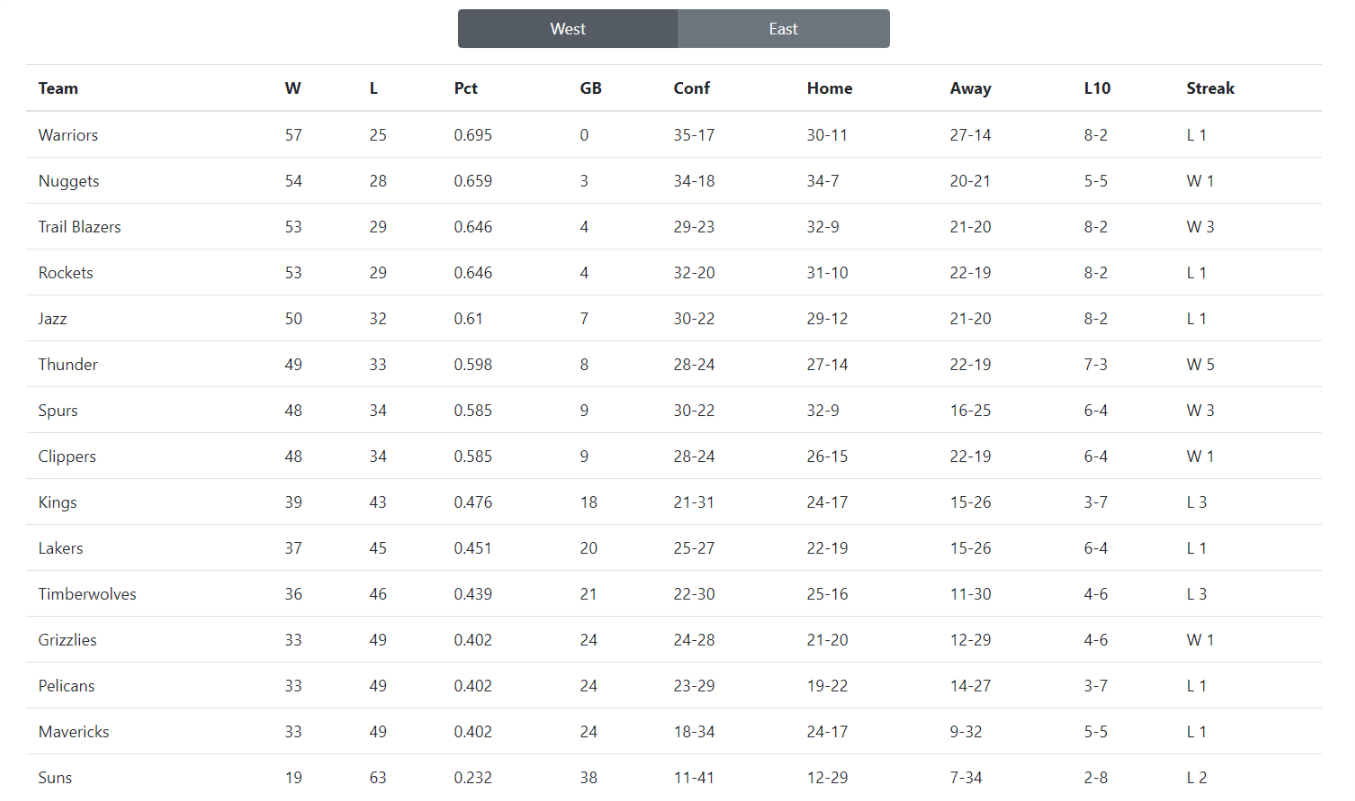
Display a game's play-by-play. Download the flow.

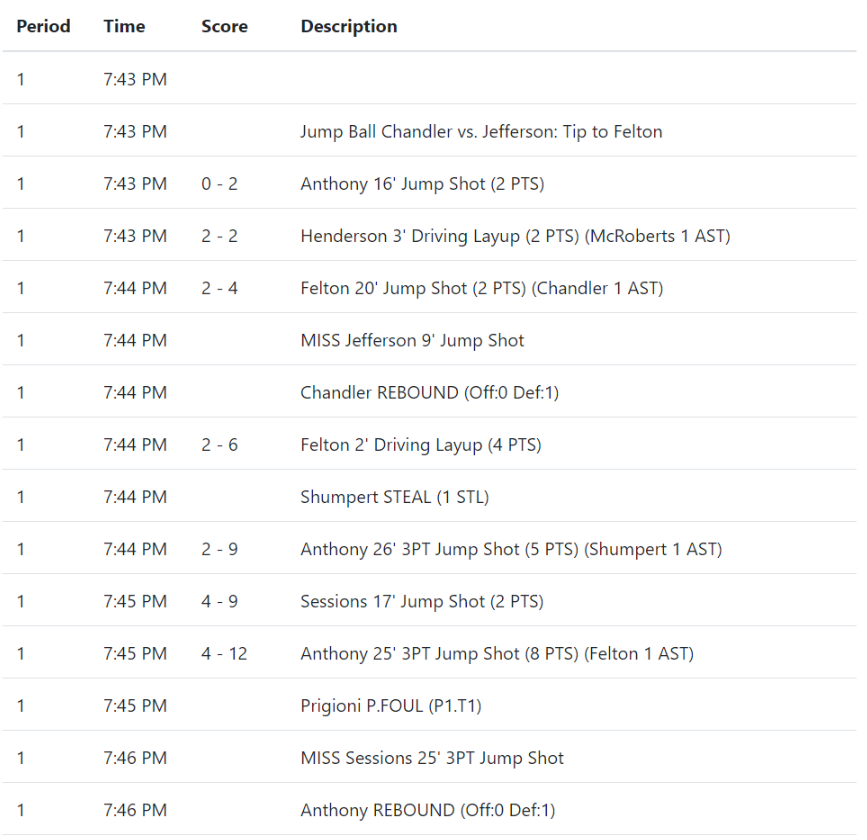
Create a Node-RED dashboard that displays the top 3pt shooters in the league. Download the flow with JS or the flow without JS



Download all website flows at once with a menu toolbar
